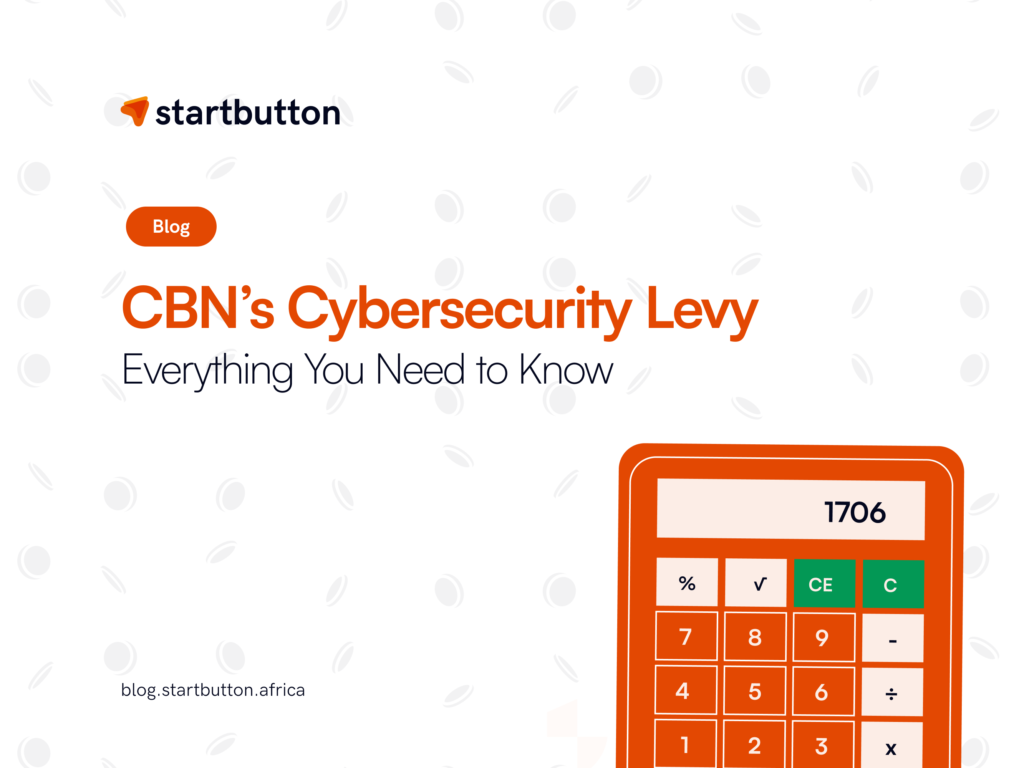This week, the Central Bank of Nigeria (CBN), via a circular dated May 6th, directed banks to implement a “levy of 0.5% (0.005) equivalent to a half percent of all electronic transactions.” This directive, set to take effect on May 20th, mandates that the collected levy be remitted to the National Cybersecurity Fund (NCF), administered by the office of the National Security Adviser (ONSA). This development has raised several questions regarding the nature of the newly amended Act. Here’s a breakdown to clarify the confusion surrounding the CBN Cybersecurity levy.
Is It 0.5% or 0.005%?
The announcement has caused confusion regarding whether the deductible tax is 0.5% or 0.005%. The circular sent to payment service providers states:
“Levy of 0.5% (0.005) equivalent to a half percent of all electronic transactions valued by the business in the second schedule of the act is to be remitted…”
The value “0.005” is a decimal representation of “0.5%” and should not be taken as a percentage on its own. The accompanying statement clarifies that it is “equivalent to half percent…”. Therefore, the Cybersecurity Levy for ₦100,000 would be ₦500, while the sum on ₦10,000 will attract a levy of ₦50.
Who Bears the Brunt of the CBN Cybersecurity Levy?
The circular expressly states:
“The deducted amount shall be reflected in the customer’s account with the narration: Cybersecurity Levy.”
This implies that bank customers will bear the brunt of the newly adjusted tax levy, while financial institutions are responsible for remitting the collected funds.
Does the CBN Cybersecurity Levy Apply to All Transactions?
No, the CBN Cybersecurity Levy does not apply to all transactions. The third schedule of the announcement highlights 16 exemptions:
- Loan disbursements and repayments
- Salary payments
- Intra-account transfers within the same bank or between different banks for the same customer
- Intra-bank transfers between customers of the same bank
- Other Financial Institutions instructions to their correspondent banks
- Interbank placements
- Banks’ transfers to CBN and vice-versa
- Inter-branch transfers within a bank
- Cheque clearing and settlements
- Letters of Credits
- Banks’ recapitalisation-related funding – only bulk funds movement from collection accounts
- Savings and deposits, including transactions involving long-term investments such as Treasury Bills, Bonds, and Commercial Papers
- Government Social Welfare Programmes transactions e.g., Pension payments
- Non-profit and charitable transactions, including donations to registered non-profit organisations or charities
- Educational institutions’ transactions, including tuition payments and other transactions involving schools, universities, or other educational institutions
- Transactions involving bank’s internal accounts such as suspense accounts, clearing accounts, profit and loss accounts, inter-branch accounts, reserve accounts, nostro and vostro accounts, and escrow accounts
Penalty for Non-Compliance
Section 44 (8) of the Act prescribes that failure to remit the levy is an offence, liable on conviction to a fine of not less than 2% of the annual turnover of the defaulting business, among other penalties.
Conclusion
While the motivation behind the imposition of the newly adjusted levy remains a subject of debate, the heavy penalty that accompanies non-compliance makes it non-negotiable for concerned financial institutions. Understanding the specifics of the CBN Cybersecurity Levy is crucial for both banks and customers to ensure compliance and avoid hefty fines.
By clarifying the CBN Cybersecurity Levy details, including its percentage, the responsible party for remittance, the types of transactions exempted, and the penalties for non-compliance, stakeholders can better navigate this new directive.
Explore Startbutton For Business Compliance and Tax-remittance Solutions
For businesses operating in Africa seeking trusted tax-compliance solutions, Startbutton provides a comprehensive platform tailored to meet your compliance needs. With a deep understanding of the intricate regulatory landscape across multiple African countries, Startbutton offers a suite of innovative solutions designed to streamline tax compliance processes and mitigate risks.
Send an email to hello@startbutton.africa or visit www.startbutton.africa to get started.


